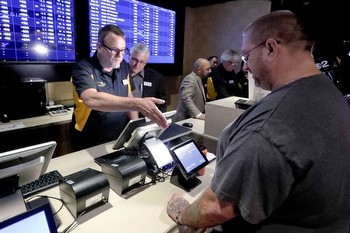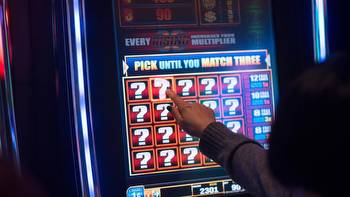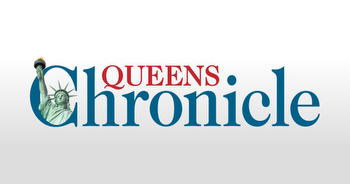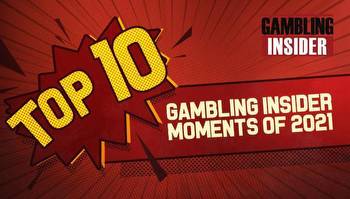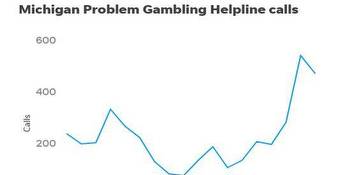Gambling addiction grows amid rise of online betting

ALBANY — More and more young adults have been gripped by compulsive gambling habits but the state has failed to provide the funding needed for a full-throttled public awareness campaign, an expert on addiction told lawmakers Tuesday.
James Maney, director of the state Council on Problem Gambling, said the recent introduction of mobile sports gambling and the expansion of other gaming outlets has contributed to an increase in the number of 18 to 24-year-olds who have evolved into “pathological gamblers.”
Maney noted the sums spent by the state to promote gambling dwarf what it spends on advertising for counseling for gambling addiction.
“I’ve heard a lot today about the economic benefits (from legalized gaming). — sure, but at what cost?” Maney said at a legislative hearing. “We get the calls at one o’clock in the morning. We get the calls from parents now of college-aged kids losing their money, asking what to do.”
Maney said calls to his agency’s referral network telephone line have increased by 25% since the introduction of sports betting in the state.
The increase in problem gambling, he said, is directly responsible for various types of family trauma and new strains on mental health services.
“When dad loses money they have to move out of their house,” Maney said. “What do you think the 10-year-old, 11-year-old goes through? They don’t call help lines. They don’t call looking for help. They arrive at our schools, in need of mental health counseling.”
Without a robust public awareness campaign, he said, more people will begin to gamble, more will become habitual gamblers with some of them evolving into pathological gamblers. Younger adults at times get caught up in the swirl after initially losing bets, due to a penchant for “chasing their losses.”
“Along the road, it gets worse and worse all the time,” Maney said. “We have to put up those safeguards. and we’re not doing enough at all.”
He estimated the state needs to dedicate about $10 million annually for advertising to help New Yorkers recognize the warning signs of problem gambling.
Recently released state data shows the state netted $909 million in revenue from sports gambling in the first year licensed companies were allowed to take such wagers. The total bet on sporting contests was put at approximately $16 billion. Online sports gaming alone accounted for $709 million of the revenue.
Maney suggested 3% of the online gaming revenue — or about $21 million — should be pumped into services for problem gamblers, but the state is giving far less to deal with the needs.
Of the various types of addictions, he said, the one with the highest incidence of suicide is compulsive gambling.
“Let’s be honest: If you watch a sporting event, we know that every young boy watching the game is being bombarded with advertisements (for gambling) and we know advertisement works,” Maney said. “We’re not doing enough. We have to make sure parents are educated. We have to make sure doctors are educated so when the kids come to pediatric care, they may address this issue.”
Among others who weighed in at the gaming hearing was Christian Genetski, a former federal prosecutor who is now president of FanDuel Group, the company with the largest share of the New York mobile gaming market and the nation’s top sports betting operator.
Genetski said FanDuel generated $330 million last year to support the state’s education programs.
“It’s safe to assume that until last year, a sizable percentage of that money was being wagered in the illegal market,” he said.
But the steady initial gains from mobile sports betting could eventually be jeopardized by the high state tax gaming companies are required to remit, he warned.
“We do not believe that this level of economic success is sustainable with the current tax rate of 51%,” Genetski said. “Although it’s only been one year since the market launched, there are clear signs that the New York market has already peaked, whereas other states remain on a solidly upward trajectory.”
To deal with the taxes, the mobile gaming companies in New York may soon have to adjust pricing, he said.
“Operators with lower market share will likely elect to withdraw from the New York market altogether,” he said. “For consumers, that means fewer options, less competition, and a much worse value proposition, all of which make the illegal offshore options much more attractive.”








